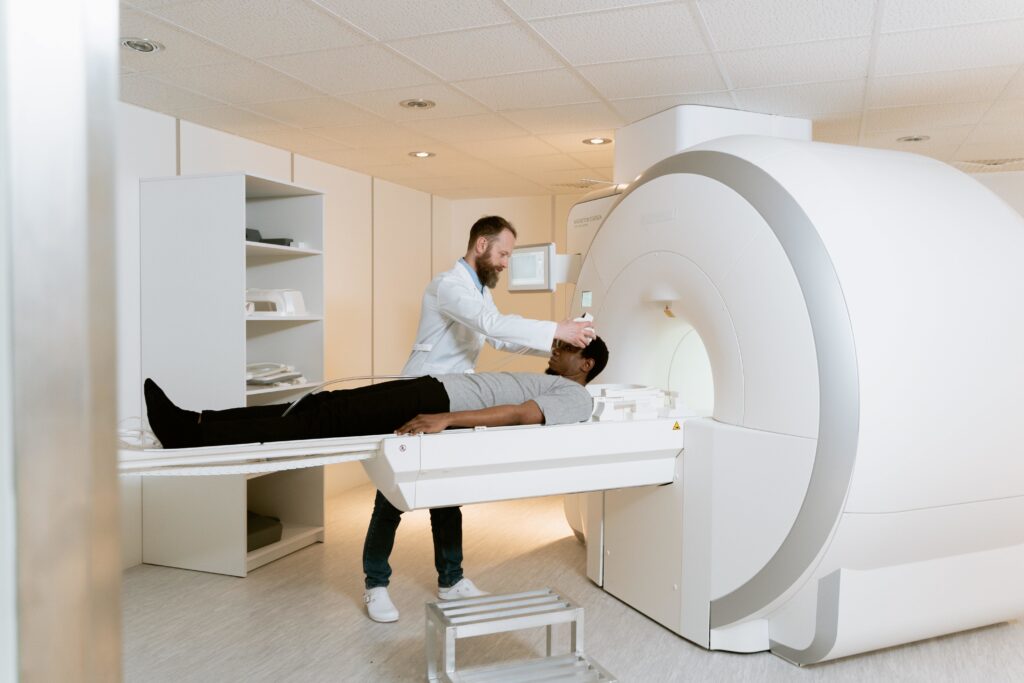New technologies have revolutionized the healthcare industry in various ways. Electronic Medical Records (EMR) have streamlined patient data management, while telemedicine has facilitated remote consultations. Artificial Intelligence (AI) has enhanced diagnostic accuracy, and precision medicine has personalized treatment plans based on genetics. Robotics in surgery has improved surgical outcomes, and the Internet of Medical Things (IoMT) enables remote monitoring and real-time analytics. These advancements have led to better patient care, improved medical outcomes, and increased healthcare efficiency. As technology continues to advance, it is crucial for healthcare professionals and policymakers to stay updated and embrace these transformative technologies for a healthier society.
Revolutionizing Healthcare: How New Technologies Are Shaping the Medical Industry
Introduction
The advent of new technologies has brought about significant advancements in various sectors, and the healthcare industry is no exception. From electronic medical records to AI-powered diagnosis, these innovations have been revolutionizing healthcare as we know it. In this article, we will explore some of the groundbreaking technologies that are shaping the medical industry and discuss the potential impacts they may have.
1. Electronic Medical Records (EMR)
One of the major developments in healthcare is the adoption of electronic medical records. EMRs have replaced paper-based systems and streamlined patient data management. With digitized records, healthcare providers can easily access and share crucial patient information, leading to improved care coordination and reduced medical errors. EMRs also enable more efficient research and analysis, driving medical discoveries and advancements.
2. Telemedicine
Telemedicine, also known as telehealth, has seen significant growth in recent years. This technology allows remote consultations between patients and healthcare professionals through secure video calls. By eliminating the need for in-person visits, telemedicine offers convenient access to healthcare, especially for individuals residing in rural or underserved areas. It has proven particularly valuable during the COVID-19 pandemic, enabling safe and efficient delivery of medical services.
3. Artificial Intelligence (AI) in Diagnosis
Artificial Intelligence has emerged as a game-changer in the medical field, particularly in diagnosis. Machine learning algorithms can analyze vast amounts of medical data and identify patterns that might not be apparent to human specialists. AI-powered diagnostic systems can assist healthcare professionals in predicting diseases, detecting abnormalities, and providing accurate treatment recommendations. This technology has the potential to enhance diagnostic accuracy, accelerate treatment decisions, and improve patient outcomes.
4. Precision Medicine
Precision medicine, also known as personalized medicine, tailors medical treatment to an individual’s unique genetic makeup, lifestyle, and environment. Thanks to advancements in genomics and molecular biology, physicians can now analyze a patient’s genetic profile to determine the most effective treatment plan. By customizing therapies, precision medicine offers improved efficacy, reduced side effects, and better patient satisfaction. This approach is expected to transform how diseases are diagnosed and treated in the future.
5. Robotics in Surgery
Robotics has made significant strides in the field of surgery. Robotic surgical systems allow surgeons to perform complex procedures with enhanced precision, control, and minimally invasive approaches. Surgical robots provide 3D visualization, magnification, and superior dexterity, enabling surgeons to achieve better outcomes and offering faster recovery times for patients. While still relatively expensive, the increasing adoption of robotic surgery is likely to transform the surgical landscape in the coming years.
6. Internet of Medical Things (IoMT)
The Internet of Medical Things (IoMT) refers to the network of medical devices, wearables, and sensors interconnected through the internet. These devices collect and transmit vital health data, enabling remote monitoring, real-time analytics, and early detection of health issues. IoMT empowers individuals to actively participate in their own healthcare, while also assisting healthcare providers in making more informed decisions. From fitness trackers to smart insulin pumps, IoMT is revolutionizing patient care and enabling preventive medicine.
Conclusion
“The rapid introduction of new technologies is transforming the healthcare industry at an unprecedented pace. From electronic medical records and telemedicine to AI-powered diagnosis and robotics in surgery, these advancements are revolutionizing patient care, enhancing medical outcomes, and improving overall healthcare efficiency. As these technologies continue to evolve, it is essential for healthcare professionals and policymakers to stay abreast of the latest developments and adapt accordingly. The future of healthcare is being shaped by innovation, and embracing these transformative technologies will undoubtedly lead to a healthier and more prosperous society.”
As we have seen, new technologies have immense potential in revolutionizing healthcare. By implementing and embracing these innovations, the medical industry can overcome existing challenges, provide more accessible and personalized care, and significantly improve patient outcomes.
With electronic medical records, telemedicine, artificial intelligence, precision medicine, robotics in surgery, and the Internet of Medical Things, the healthcare industry is at the forefront of a technological revolution. The future holds even greater promise as more disruptive technologies emerge and reshape the medical landscape.
